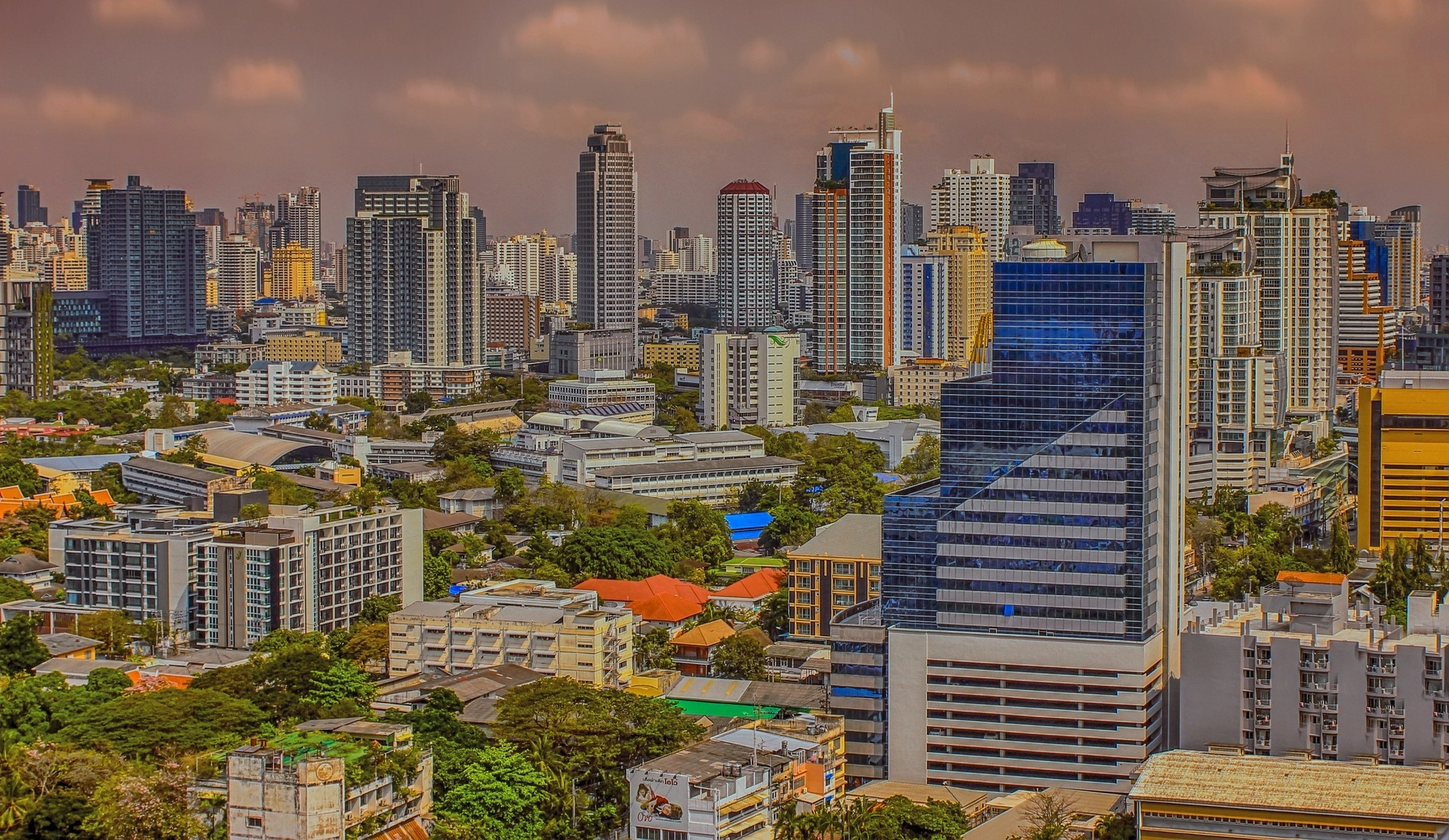Bangkok, the vibrant and dynamic capital of Thailand, is a city of contrasts. Known for its bustling streets, rich cultural heritage, and rapid urbanization, it is also infamous for its traffic congestion and air pollution. As the city grapples with these challenges, electric vehicles (EVs) have emerged as a transformative solution to reduce emissions, improve air quality, and create a more sustainable urban environment. This article provides a comprehensive exploration of the current state of electric vehicles in Bangkok, the challenges and opportunities they present, and the broader implications for the city’s transportation ecosystem.
The Rise of Electric Vehicles in Bangkok
The adoption of electric vehicles in Bangkok is part of a global trend towards cleaner and more sustainable transportation. However, in Bangkok, this shift is particularly significant due to the city’s unique challenges and opportunities. Thailand has long been a regional hub for automotive manufacturing, producing millions of internal combustion engine (ICE) vehicles annually. Recognizing the global shift towards electrification, the Thai government has taken proactive steps to position the country as a leader in the EV industry.
In recent years, Bangkok’s electric vehicle adoption has increased steadily due to government policies, technology advances, and shifting consumer preferences. Thailand’s incentives like tax cuts, import duty exemptions, and subsidies drive this growth, with the EV3.5 policy of 2022 offering significant benefits. These measures have made electric vehicles more affordable and accessible to Bangkok residents.
Additionally, the government has set ambitious targets for the EV industry. The “30@30” initiative aims to have 30% of all vehicles produced in Thailand be electric by 2030. This target underscores the country’s commitment to transitioning to a low-carbon economy and reducing its reliance on fossil fuels.
The Current Landscape of EVs in Bangkok
As of 2023, Bangkok’s streets are increasingly populated with electric vehicles, ranging from electric cars and buses to motorcycles and tuk-tuks. Major global automakers, such as Tesla, BMW, and Nissan, have entered the Thai market, offering a variety of electric models to cater to different consumer needs. Local companies like MG and BYD are also gaining traction, providing affordable and reliable electric vehicles tailored to the Thai market.
Electric motorcycles, in particular, have become popular among commuters due to their affordability and ease of use in the city’s congested traffic. Companies like Honda and Yamaha have introduced electric motorcycle models, while startups like MuvMi are offering electric tuk-tuks as a cleaner alternative to traditional gasoline-powered versions.
Public transportation is also undergoing an electric transformation. The Bangkok Metropolitan Administration (BMA) has introduced electric buses on select routes, reducing emissions and providing a quieter, more comfortable ride for passengers. These electric buses are part of a broader effort to modernize the city’s public transportation system and make it more sustainable.
Challenges to Widespread Adoption
Despite the progress, several challenges hinder the widespread adoption of electric vehicles in Bangkok:
- Charging Infrastructure: One of the most significant barriers is the lack of sufficient charging infrastructure. While the number of charging stations is growing, they are still relatively sparse compared to the city’s size and population. Range anxiety remains a concern for potential EV owners, particularly for those who rely on their vehicles for long commutes. To address this issue, the government and private sector are working together to expand the network of charging stations. Companies like PTT and EA Anywhere are leading the charge, with plans to install thousands of charging stations across the city in the coming years.
- High Initial Costs: Although government incentives have made EVs more affordable, the upfront cost of electric vehicles is still higher than that of conventional cars. This can be a deterrent for middle- and lower-income residents. To overcome this barrier, the government is exploring additional financial incentives, such as low-interest loans and leasing programs, to make EVs more accessible to a broader segment of the population.
- Power Grid Capacity: The transition to electric vehicles places additional demand on Thailand’s power grid. Ensuring that the grid can handle this increased load, particularly during peak hours, is a critical challenge that requires investment in renewable energy sources and grid modernization. The government is working to increase the share of renewable energy in the country’s energy mix, with a focus on solar and wind power. Additionally, smart grid technologies are being deployed to optimize energy distribution and manage demand more effectively.
- Consumer Awareness: Many Bangkok residents are still unfamiliar with the benefits of electric vehicles or have misconceptions about their performance and reliability. Public education campaigns are needed to address these issues and encourage more people to make the switch. The government, in collaboration with automakers and NGOs, is working to raise awareness about the environmental and economic benefits of EVs through workshops, seminars, and media campaigns.
Opportunities for Growth
Despite these challenges, Bangkok is well-positioned to become a leader in electric vehicle adoption in Southeast Asia. The city’s compact size and dense population make it an ideal environment for EVs, which are particularly well-suited for short-distance travel. Moreover, the growing middle class and increasing environmental consciousness among residents create a fertile ground for the expansion of the EV market.
The private sector is also playing a crucial role in driving this transition. Companies are investing in charging infrastructure, with plans to install thousands of charging stations across the city in the coming years. Additionally, ride-hailing services like Grab are incorporating electric vehicles into their fleets, further normalizing their use among the public. For example, Grab has partnered with Hyundai to introduce electric ride-hailing services in Bangkok, providing passengers with a cleaner and more sustainable transportation option.
Environmental and Economic Benefits
The shift to electric vehicles offers numerous benefits for Bangkok and its residents. Most notably, EVs produce zero tailpipe emissions, which can significantly improve air quality in a city that frequently ranks among the most polluted in the world. This, in turn, can lead to better public health outcomes and reduced healthcare costs. According to a study by the International Institute for Sustainable Development (IISD), widespread adoption of EVs in Bangkok could reduce greenhouse gas emissions by up to 30% by 2030.
From an economic perspective, the growth of the EV industry presents opportunities for job creation and technological innovation. Thailand’s strong automotive manufacturing base provides a solid foundation for the production of electric vehicles and components, potentially positioning the country as a regional export hub for EVs. The government is also investing in research and development to support the growth of the EV industry, with a focus on battery technology, electric drivetrains, and smart mobility solutions.
The Road Ahead
The future of electric vehicles in Bangkok looks promising, but realizing this potential will require coordinated efforts from the government, private sector, and civil society. Key priorities include expanding charging infrastructure, investing in renewable energy, and raising public awareness about the benefits of EVs.
As Bangkok continues to grow and evolve, electric vehicles offer a pathway to a cleaner, greener, and more sustainable urban future. By embracing this technology, the city can not only address its pressing environmental challenges but also set an example for other cities in the region to follow.
In conclusion, electric vehicles are more than just a mode of transportation in Bangkok—they represent a transformative shift towards a more sustainable and livable city. With the right policies, investments, and public support, Bangkok can drive this change and lead the way in the global transition to electric mobility. The journey towards a sustainable future is well underway, and electric vehicles are at the heart of this transformation.



Pingback: Electric Vehicles in Istanbul: A Sustainable Future in the City of Contrasts - Tech Master Online